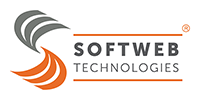Introduction to Smart Farming with IoT
Smart farming, fueled by the Internet of Things (IoT), represents a paradigm shift in conventional agricultural methods. In this comprehensive exploration, we delve into the transformative influence of IoT on agriculture, honing in on key facets such as precision farming, automated machinery, and data-driven decision-making.
IoT integration allows for precision farming techniques, utilizing advanced sensors and GPS technology to optimize management at the field level. This not only enhances efficiency but also empowers farmers to make informed decisions regarding irrigation, fertilization, and pest control, thereby maximizing crop yields and resource utilization.
The role of automated machinery, equipped with IoT sensors, and drones with aerial perspectives is examined, showcasing their ability to swiftly identify and address crop issues. Furthermore, the blog navigates the impact of IoT-driven soil monitoring systems, offering real-time insights for healthier crops. As we embark on this journey, it becomes evident that Smart Farming with IoT is not just a technological advancement but a revolution in agriculture, promising increased productivity and sustainability.
The Impact of IoT on Agriculture
Precision Agriculture for Enhanced Productivity
Precision agriculture, a cornerstone of smart farming empowered by the Internet of Things (IoT), brings a revolutionary approach to field-level management. Through the integration of advanced sensors and GPS technology, precision farming enables farmers to make data-driven decisions that optimize key aspects such as irrigation, fertilization, and pest control. This transformative approach not only enhances crop yields but also ensures a more efficient utilization of resources.
IoT in Action
Automated Machinery and Drones
In the realm of IoT in action, automated machinery and drones emerge as pivotal components reshaping farming accuracy. Automated machinery, enriched with IoT sensors, demonstrates unparalleled precision in tasks, while drones equipped with IoT capture aerial views, swiftly identifying crop issues. This real-time information facilitates proactive intervention, addressing challenges promptly and contributing to overall farm efficiency.
Soil Monitoring Systems
Moreover, soil monitoring systems, powered by IoT devices, play a crucial role in sustainable farming practices. By providing farmers with real-time insights into soil health, these systems enable precise interventions. This includes adjusting irrigation levels, selecting appropriate fertilization strategies, and even implementing targeted pest control measures.
IoT in Pest Control
Speaking of pest control, IoT’s role in this domain is pivotal. Through continuous monitoring and data analytics, IoT devices can detect early signs of pest infestations.
This enables farmers to implement timely and targeted interventions, reducing the reliance on broad-spectrum pesticides and promoting environmentally friendly pest management practices. As a result, not only are crop yields optimized, but the overall ecological impact of farming practices is also mitigated.
Benefits of Smart Farming with IoT
Increased Efficiency
Embracing IoT in agriculture leads to a paradigm shift in operational efficiency. The integration of IoT technologies streamlines farming operations, markedly reducing the need for manual labor. A simple example of implementing facial recognition technology for attendance management for tea, coffee, rubber, palm oil and other plantation industry, can increase efficiency farm.
This enhanced efficiency not only saves valuable time for farmers but also contributes significantly to cost reduction. Through automated processes and real-time monitoring, tasks that once demanded considerable manpower are now executed with precision and speed.
Data-Driven Decision Making
The power of data-driven decision-making takes center stage in smart farming with IoT. As farms become increasingly connected, vast amounts of data are generated. This wealth of information empowers farmers to make informed decisions, adapting swiftly to changing agricultural conditions.
From adjusting irrigation schedules based on weather patterns to optimizing fertilization cycles, the data-driven approach enhances overall crop management.
The necessity of an agri-plantation ERP becomes crucial for organised data driven decisions. In essence, the fusion of IoT and agriculture not only increases operational efficiency but also cultivates a smarter, more adaptive approach to decision-making in farming practices.
Overcoming Challenges
Initial Investment
Navigating the initial investment challenges in implementing IoT technologies in agriculture is crucial. While there may be upfront costs, understanding the long-term gains is essential. Investing in IoT for farming offers sustainable practices that can significantly outweigh the initial financial commitment, ensuring increased efficiency and productivity in the agricultural sector.
Data Security Concerns
Addressing data security concerns is paramount in the age of increasing digital reliance in agriculture. Emphasizing the importance of cybersecurity measures is necessary to safeguard sensitive farm data. Protecting this valuable information not only ensures a secure farming experience but also contributes to maintaining the efficiency and integrity of the entire agricultural ecosystem.
The Future of Agriculture: A Digital Frontier
As we stand at the intersection of agriculture and technology, the future unfolds as a digital frontier of immense potential. Smart Farming with IoT is not merely a response to current challenges but a gateway to innovations poised to revolutionize the entire agricultural landscape. The amalgamation of advanced technologies and farming practices promises a future where efficiency, sustainability, and productivity harmoniously coexist, reshaping the way we approach agriculture.
Conclusion
In conclusion, embracing the transformative force of Smart Farming with IoT is the key to ensuring sustainable and forward-thinking farming practices. This technological integration propels agriculture into a new era, where efficiency and productivity thrive, laying the groundwork for a future-ready and environmentally conscious agricultural sector.


